Time Travel, Teleportation & Science
Time travel is the concept of moving between different points in time in a manner analogous to moving between different points in space, generally using a theoretical invention, namely a time machine. It has a commonly recognized place in philosophy and fiction, but has a very limited application in real world physics, such as in quantum mechanics or wormholes.
Although the 1895 novel The Time Machine by H. G. Wells was instrumental in moving the concept of time travel to the forefront of the public imagination, The Clock That Went Backward by Edward Page Mitchell was published in 1881 and involves a clock that allowed three men to travel backwards in time.[1][2] Non-technological forms of time travel had appeared in a number of earlier stories such as Charles Dickens' A Christmas Carol. Historically, the concept dates back to the early mythologies of Hinduism (such as the Mahabharata), Buddhism, and Islam through ancient folk tales. More recently, with advancing technology and a greater scientific understanding of the universe, the plausibility of time travel has been explored in greater detail by science fiction writers, philosophers, and physicists.
Teleportation, or Teletransportation, is the theoretical transfer of matter or energy from one point to another without traversing the physical space between them. It has a commonly recognized place in science fiction literature, film, and television, but as yet has a very limited application in real world physics, such as quantum teleportation or the study of wormholes.
Science (from Latin scientia, meaning "knowledge") is a systematic enterprise that builds and organizes knowledge in the form of testable explanations and predictions about the universe. In an older and closely related meaning, "science" also refers to a body of knowledge itself, of the type that can be rationally explained and reliably applied. A practitioner of science is known as a scientist.
In modern usage, "science" most often refers to a way of pursuing knowledge, not only the knowledge itself. It is also often restricted to those branches of study that seek to explain the phenomena of the material universe.
Source : Wikipedia
-
37:54

Do Chairs Exist?
Added 246 Views / 0 LikesSubscribe to our Curiosity Box! http://www.curiositybox.com/bogo Add the Summer Box to your cart, use code BOGO, and get the summer box FREE!FOLLOW ME:https://twitter.com/tweetsaucehttps://www.instagram.com/electricpants/LINKS TO LEARN MORE:BOOKS:Metameta
-
06:07
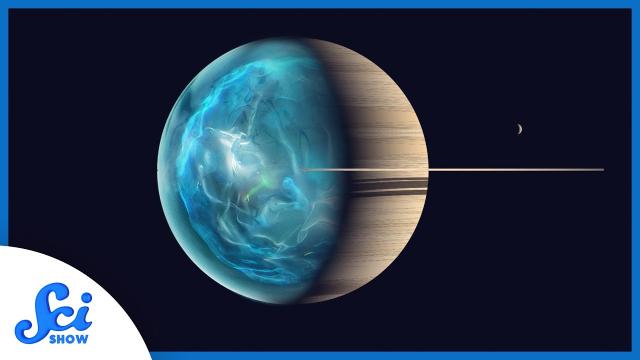
What Saturn’s Rings Tell Us About Its Soupy Core
Added 245 Views / 0 LikesThis episode is sponsored by Endel, an app that creates personalized soundscapes to help you focus, relax and sleep.The first 100 people to sign up here get a one week free trial: https://app.adjust.com/b8wxub6?campaign=scishowspace_august&adgroup=youtube
-
02:20
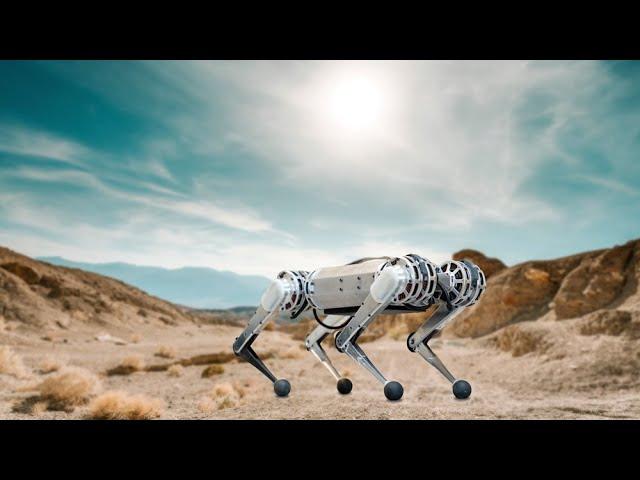
One giant leap for the mini cheetah
Added 245 Views / 0 LikesA new control system, designed by researchers in MIT's Improbable AI Lab and demonstrated using MIT’s robotic mini cheetah, enables four-legged robots to traverse across uneven terrain in real-time. (Learn more: http://news.mit.edu/2021/one-giant-leap-min
-
00:56

What's In The Winter Box #shorts
Added 245 Views / 0 Likeshttps://www.curiositybox.comeat my #shorts
-
01:53
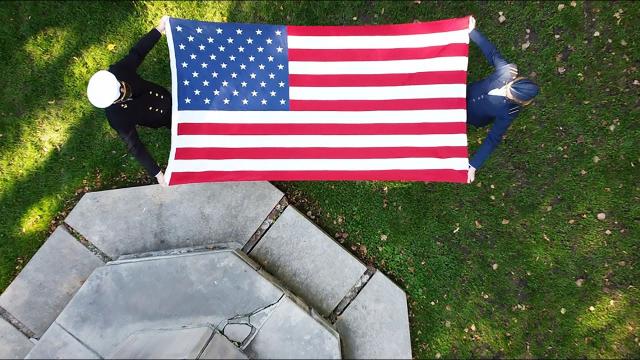
In honor of Veterans Day
Added 243 Views / 0 LikesMilitary training has existed at MIT since 1865, with more than 12,000 officers commissioned from the Institute. Today, MIT offers Air Force, Army, and Naval ROTC programs. In honor of Veterans Day, cadets from all three branches present the flag.MIT Air
-
06:31
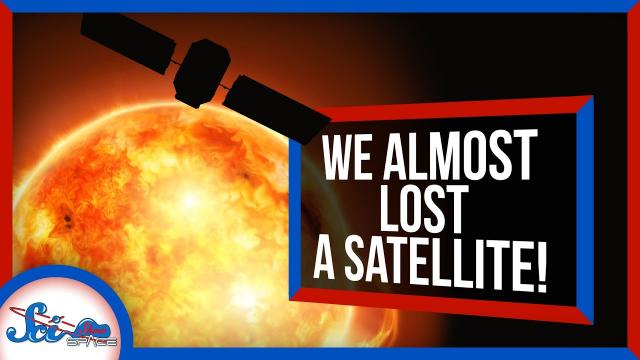
How a Doomed Spacecraft Lived to Tell the Tale of the Sun
Added 243 Views / 0 LikesWhat would you do if you were in charge of a billion-dollar satellite that was spinning out of control? In 1998, NASA and ESA engineers had to solve this exact problem. How did they avert this disaster?SOHO is our Pin of the Month! Get it before December
-
05:14
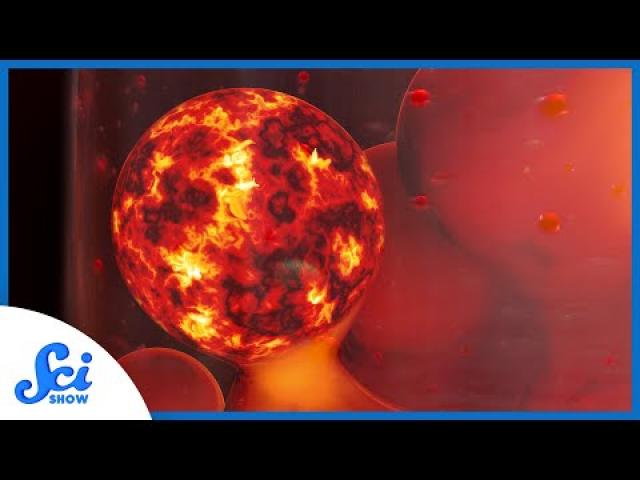
Two Decades Later, We Know Why the Sun Is a Lava Lamp
Added 243 Views / 0 LikesIn 1999, scientists discovered something that took over 20 years to solve. Why do solar flares move like a lava lamp?Hosted By: Hank Green----------Huge thanks go to the following Patreon supporter for helping us keep SciShow Space free for everyone forev
-
01:09
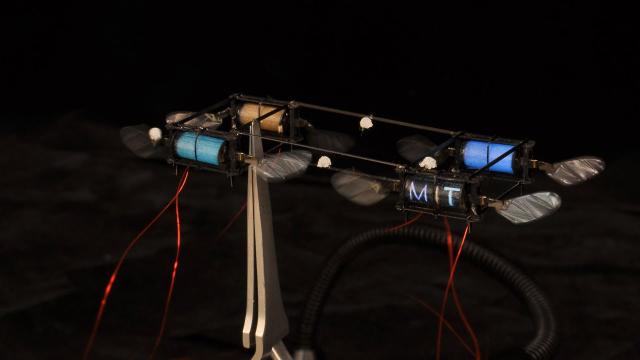
Robotic lightning bugs
Added 243 Views / 0 LikesInspired by fireflies, a team of researchers has created insect-scale robots that can emit light when they fly, which enables motion tracking and communication. (Learn more: https://news.mit.edu/2022/robotic-actuator-fly-0621)Watch more videos from MIT: h
-
05:19

Going Above and Beyond in Service to the Nation
Added 242 Views / 0 LikesMIT has offered military training since 1865. Today, it hosts Air Force, Army, and Naval ROTC programs. “It’s really inspiring to be around a group of people that is so motivating,” says AeroAstro senior and Navy ROTC Midshipman Juliana Silldorff. Here, S
-
14:11
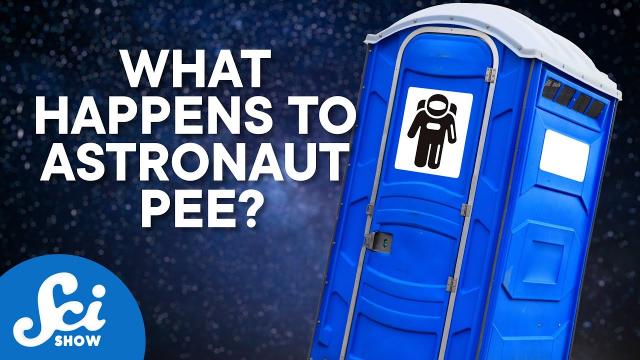
Reducing Space Waste Before, During, and After Missions
Added 241 Views / 0 LikesRight now, discarded parts from old spacecraft, bags of pee, and dead probes are just floating around in space, but it doesn’t have to be like that. Let's take a look at some of the ways we've figured out to reduce, reuse, and recycle in space.Hosted by:
-
01:35

Covid-19 vaccines arrive at MIT
Added 239 Views / 0 LikesAt the end of December, MIT received its first shipment of Moderna's Covid-19 vaccine. Almost immediately the immunization of physicians, nurses, other clinicians; front-desk staff; medical housekeepers; and others who have patient-facing roles, such as t
-
05:10

Computing Fabrics
Added 239 Views / 0 Likes“It’s exciting to really change the aesthetics of technology,” says Yoel Fink, who teaches the course, "Computing Fabrics," to students from MIT and elsewhere. The class explores the history and future of fabrics, including next-gen textiles that will be
-
12:54
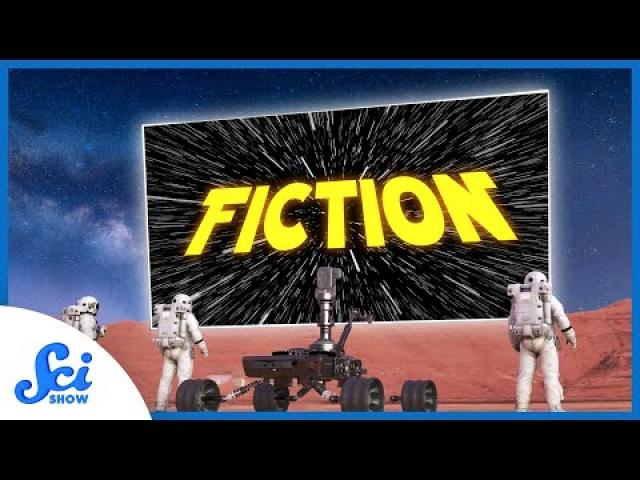
How We Know Star Wars Isn’t A Documentary | Compilation
Added 239 Views / 0 LikesPlot often trumps reality when portraying space in movies and, as a result, many films are full of inaccuracies. So how much fiction is actually written into some of our favorite movies? Movies mentioned (and potentially spoiled) in this video: Armageddon
-
18:42

Could You Survive A QUIET PLACE?
Added 238 Views / 0 LikesGuest StarRikky Poynter: https://www.youtube.com/user/rikkipoynter12tone: https://www.youtube.com/channel/UCTUtqcDkzw7bisadh6AOx5w Shhhhh… Years after an alien invasion, Jake (me) quietly ekes out a meager existence while avoiding the sound-sensitive alie
-
03:29
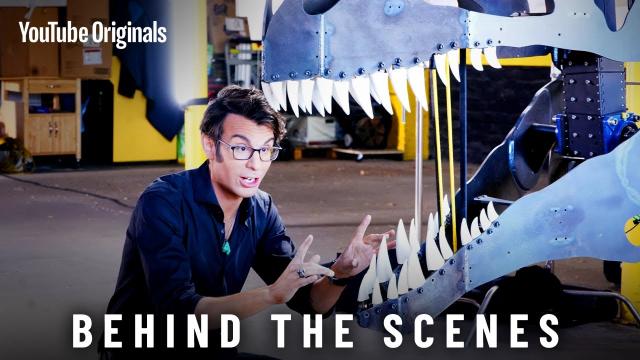
My Lifelong Love Affair! Behind the Scenes of CYSTM: Jurassic Park
Added 238 Views / 0 LikesWatch main episode: https://youtu.be/nDnZ6xAdZ3gGet a glimpse of Jake’s (me) first attempt at making Jurassic Park (28 years ago!), before journeying behind the scenes of his latest version, filmed once again with his family and friends…plus some new frie
-
03:22
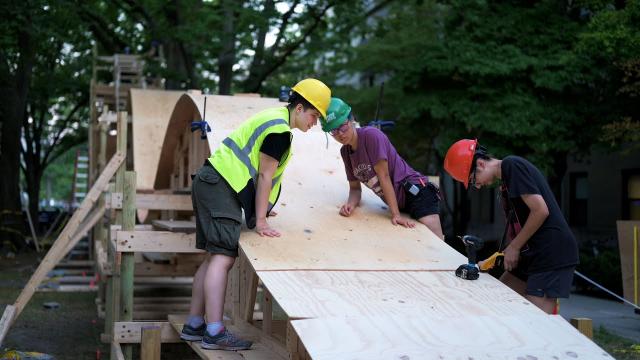
Who wants to build a rollercoaster?
Added 237 Views / 0 LikesEvery year during residence exploration week at MIT, or REX week, our undergraduate residence halls host activities to encourage new students to visit, get to know the vibe of the community, and hopefully choose to join. So, how do you get the attention o
-
05:34

The Mysterious Cosmic Explosion Called “The Cow” | SciShow News
Added 236 Views / 0 LikesThe exploding “cow” around 200 million light-years away is running astronomers for a loop, but if it is what some hypothesize, we are witnessing a first for astronomy! Meanwhile, we got photographic evidence of a planet orbiting a binary star system!Hoste
-
03:51

New Years Traditions: From candles to yellow underwear
Added 236 Views / 0 LikesMore than 3,000 of MIT’s students come from countries other than the U.S., bringing with them a variety of traditions for ringing in the new year. The International Students Association wishes everyone in the MIT community a joyful, peaceful 2022!MIT Inte
-
15:15
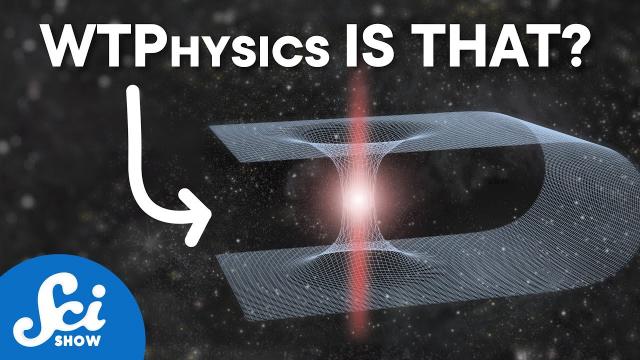
Holes In Space That Aren't Black | Compilation
Added 236 Views / 0 LikesWe’ve talked a lot about black holes, but there are other kinds of space holes out there that deserve some time in the spotlight!Hosted by: Reid Reimers----------Huge thanks go to the following Patreon supporter for helping us keep SciShow Space free for
-
07:17
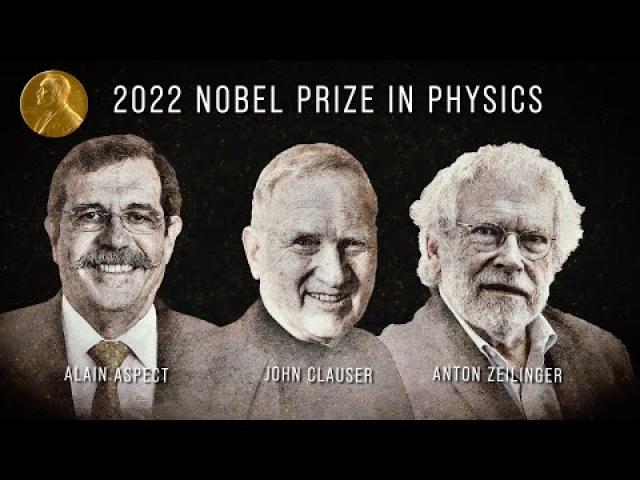
Quantum Entanglement: 2022 Nobel Prize in Physics
Added 235 Views / 0 Likes#QuantumEntanglement #nobelprize #BrianGreeneThe 2022 Nobel Prize in Physics has been awarded to Alain Aspect, John Clauser and Anton Zeilinger for their groundbreaking work in Quantum Entanglement. Here is a brief visual summary of the essential physics.
